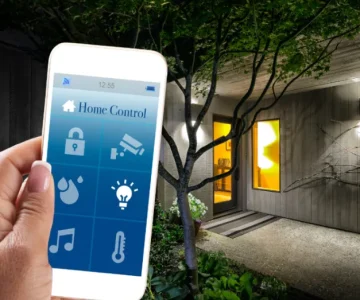The hospitality sector is in the midst of a major shift, with automation technology changing the way hotels and resorts operate. From streamlining everyday processes to delivering more personalised guest experiences, automation is becoming an essential part of staying competitive in an increasingly digital world. For hoteliers, investing in the right solutions can improve efficiency, boost productivity, and ensure exceptional service for today’s tech-savvy travellers.
This post explores the advantages of hotel automation, the types of systems available, and how tailored solutions can help you remain at the forefront of the industry.
Understanding Hotel Automation
Hotel automation involves integrating advanced systems and technology to handle a variety of tasks—ranging from check-ins and room assignments to staff coordination and service requests—without constant manual intervention. By taking over repetitive processes, these tools free up staff to focus on higher-value guest interactions.
Modern automation goes beyond convenience. With customised solutions designed for specific properties, it offers the ability to create memorable, personalised stays while reducing costs and maximising operational performance.
Key Advantages of Hotel Automation
1. Elevated Guest Experiences
In a crowded market, hotels need to stand out by offering seamless, personalised stays. Automated check-in options, such as self-service kiosks and mobile apps, remove the need for lengthy front-desk interactions, giving guests a smooth start to their visit.
Inside the room, smart systems allow guests to adjust lighting, climate, and entertainment directly from their phones or via voice commands. This level of personal control not only increases comfort but also makes the experience feel more customised.
2. Streamlined Operations
Automation significantly reduces the workload for staff by managing tasks like housekeeping schedules, room assignments, and service requests. Communication can also be automated, with systems sending booking confirmations, payment receipts, and service updates instantly.
These efficiencies free employees to focus on problem-solving and delivering exceptional service, while automated inventory management ensures amenities remain well-stocked without time-consuming manual checks.
3. Greater Efficiency and Cost Savings
By handling bookings, rate adjustments, and distribution channels automatically, hotels can maintain high occupancy and optimise revenue with minimal oversight. Intelligent energy management further cuts costs by adjusting lighting and temperature in unoccupied rooms, lowering utility bills without compromising guest comfort.
4. Data-Driven Decision Making
Automation centralises guest and operational data through systems like property management software. This provides hotel managers with valuable insights into guest behaviour, preferences, and trends. These insights can guide pricing strategies, marketing campaigns, and service enhancements, ultimately boosting satisfaction and encouraging repeat stays.
5. Scalability and Seamless Integration
Automation systems can be customised for any type of property, from boutique hotels to large resorts. They integrate with other platforms—such as security systems, payment solutions, and messaging tools—creating a unified operational environment. For example, integrating smart room controls with security systems can enhance safety while improving energy efficiency.
Emerging Trends in Hotel Automation
- Voice-Activated Controls: Growing adoption of voice assistants allows guests to manage room settings and request services through simple spoken commands.
- AI-Powered Personalisation: Machine learning can analyse guest history to offer tailored recommendations and services.
- Robotic Assistance: Robots are being introduced for deliveries, concierge tasks, and check-outs, speeding up service while reducing manual effort.
- Cloud-Based Management Systems: Cloud platforms give managers remote access to operational data, improving flexibility and decision-making across multiple properties.
Final Thoughts
Automation is no longer an optional upgrade—it’s a necessity for modern hospitality. By adopting tailored solutions, hotels can deliver smoother, more personalised experiences, optimise daily operations, and reduce costs. As technology continues to advance, automation will remain a key driver for success, helping hotels meet the evolving expectations of guests and stay ahead in a competitive market.





